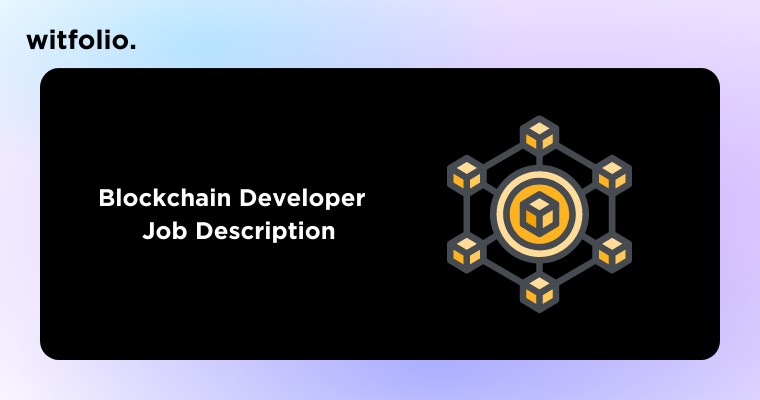The technology behind blockchain has been growing in popularity over the past few years, and with it, the demand for Blockchain Developers. Blockchain is a decentralized and distributed ledger technology that records transactions in a secure and transparent manner. Blockchain Developers are responsible for designing and developing blockchain-based applications, platforms, and protocols.
Who is a Blockchain Developer?
A Blockchain Developer is a professional who specializes in designing and developing blockchain-based solutions. They are responsible for creating and maintaining the architecture of blockchain technology, including smart contracts, decentralized applications (dApps), and cryptocurrencies.
Roles and Responsibilities of a Blockchain Developer
- Developing blockchain solutions based on business requirements
- Designing and implementing blockchain-based systems and platforms
- Collaborating with cross-functional teams to ensure seamless integration of blockchain technology
- Creating and maintaining blockchain-based applications
- Building and deploying smart contracts
- Providing technical guidance and support to team members
- Developing and implementing security protocols for blockchain systems
- Ensuring the scalability and performance of blockchain applications
- Staying up-to-date with the latest blockchain technology trends and advancements.
Skills Required for a Blockchain Developer
- Proficiency in blockchain technologies such as Ethereum, Hyperledger, and Corda
- Experience in developing decentralized applications (dApps)
- Strong understanding of smart contracts and Solidity programming language
- Experience in developing and deploying smart contracts on blockchain platforms
- Familiarity with cryptography and security protocols
- Knowledge of consensus algorithms such as Proof of Work and Proof of Stake
- Experience in developing blockchain-based applications using web3.js, Truffle, and Ganache
- Strong analytical and problem-solving skills.
Qualifications Required for a Blockchain Developer
- Bachelor’s or Master’s degree in Computer Science or related field
- Certification in blockchain technologies such as Certified Blockchain Developer (CBD)
- Experience in software development and programming languages such as Python, Java, and C++.
What does a Blockchain Developer do?
A Blockchain Developer is responsible for designing, developing, and deploying blockchain-based applications, platforms, and protocols. They work closely with cross-functional teams to ensure seamless integration of blockchain technology and provide technical guidance and support to team members. They also ensure the security, scalability, and performance of blockchain applications.
Final Word
The demand for Blockchain Developers is growing rapidly, and with it, the need for professionals with the right skills and qualifications. Blockchain Developers are responsible for creating and maintaining the architecture of blockchain technology and ensuring the security, scalability, and performance of blockchain-based applications. If you’re interested in pursuing a career in blockchain development, make sure to acquire the necessary skills and qualifications to succeed in this field.
FAQ
Yes, it’s a promising career with high demand in various industries like finance, healthcare, and supply chain.
Languages like Solidity, Java, Python, and C++ are commonly used for blockchain development.
The average salary for a blockchain developer in India ranges from 5 to 20 lakhs per annum, depending on experience and skills.
A bachelor’s degree in computer science, engineering or a related field is required for a blockchain developer role, along with coding skills.
Yes, it’s in high demand across industries like finance, healthcare, supply chain, and real estate, among others.
With blockchain adoption increasing, the demand for skilled blockchain developers is likely to grow, making it a promising career option with opportunities for innovation and growth.
Disclaimer
This article is solely for educational purposes. Witfolio or its team doesn't take any responsibility for the information or claims made in the blog.
